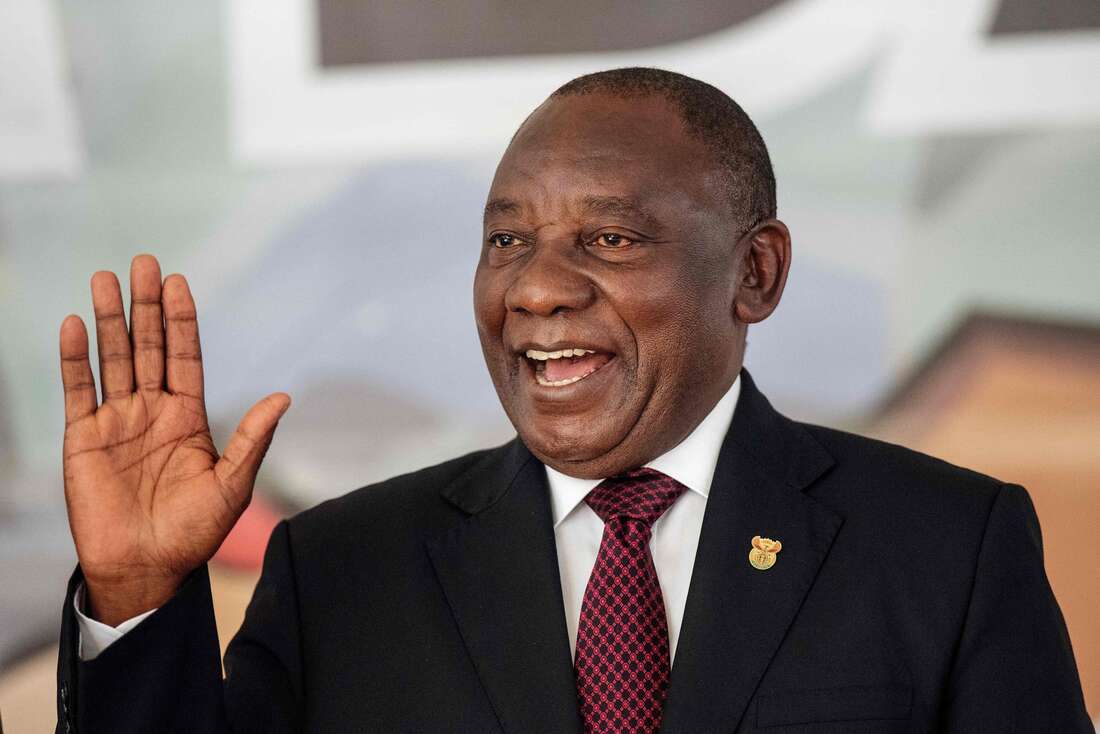India, South Africa relaunch vaccine patent waiver campaign

South Africa President Cyril Ramaphosa.
India and South Africa say they are rallying the global community again to push for vaccine patent waivers and shortages of jabs continue.
South Africa’s President Cyril Ramaphosa told an audience on Monday he will work with India in renewed calls for exemptions to deal with the Covid-19 emergency.
Speaking at the Dakar International Forum on Peace and Security, President Ramaphosa said efforts to curb the spread of new Covid-19 variants would only be successful if vaccines and medicines are more accessible.
Last October, India and South Africa submitted a proposal to waive intellectual property rights such as patents and other protections for Covid-19 vaccines and medicines so that they can be more accessible.
The proposal highlighted the urgent need to ensure equitable and speedy access to vaccines despite the devastating coronavirus infections.
But it fell through as richer countries wobbled after pressure from pharmaceutical companies not to endorse such a move over potential losses.
In their joint proposals, India and South Africa had argued that while patents are unique rights, poorer countries should be granted a limited opening to manufacture vaccines locally and deal with emergencies.
They had wanted the World Trade Organization to amend its rules on intellectual property rights for special exemptions such as when a disease is declared a pandemic or in certain urgent situations.
But as the WTO often works on consensus building, some member states, especially in the West, declined to endorse the plan. India said at the time the WTO had failed to address Covid-19 vaccine shortages especially in Africa, which was the last region to launch vaccinations and which is yet to achieve a 10 percent immunisation rate.
Fourth wave
“For us to meet the challenge presented by new variants, like Africa, we cannot wait around for vaccines to be allocated to us as we were forced to in the past,” President Ramaphosa said.
“I want to use this opportunity to call on our sister African countries to support this proposal. All that India and South Africa propose is for this requirement to be waived temporarily at the WTO to enable countries that have the capability on the African continent to manufacture these vaccines.”
His calls come as South Africa is experiencing a rate of infections not seen since the pandemic started. Over the past week, the number of daily infections has increased five-fold. He said nearly a quarter of all Covid-19 tests now come back positive.
“While the surge in infections is of great concern, we should remember that we anticipated it. Disease modellers in our country have told us that we would likely experience a fourth wave around this time and that it was almost inevitable that new variants of the virus would emerge,” he said.
“As we enter the fourth wave, and as the country gears up for the festive season, the urgent priority is for more people to get vaccinated. Scientific evidence shows that vaccination is the most effective means of preventing the spread of new infections and that vaccines reduce severe illness, hospitalisation and death.”
White House spokesperson Jen Psaki previously said the United States would “evaluate whether it’s more effective to manufacture [the vaccines] here and provide supply to the world or the IP waiver is an option”.
Under the WTO Agreement on Trade-Related Aspects of Intellectual Property Rights (TRIPS), exemptions can be made and patent protections suspended on medicines needed in an emergency. India and South Africa have worked together in the past to obtain a similar exemption for drugs needed to treat HIV and Aids.
However, developers of Covid-19 vaccines such as AstraZeneca, Pfizer and Johnson & Johnson have opposed any waiver for their doses, saying they can produce adequate jabs to meet the global demand.
The pharmaceutical majors have also contended that smaller manufacturers in the developing world do not possess the technology or the skills to produce such complex vaccines.




